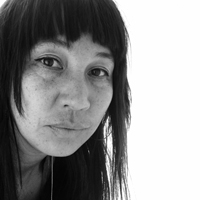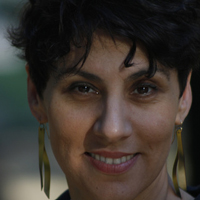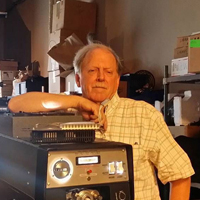2017 Award Recipients
This year’s AMIA Awards recipients include: Robert Gitt, founder of the UCLA Film & Television Archive’s Preservation Department, for the Silver Light Award; Regina Longo, founder and leader of the Albanian Cinema Project (ACP), for the Alan Stark Award; Moriah Ulinskas, longtime chair of the AMIA Diversity Committee, with the William S. O’Farrell Volunteer Award; and, Chapin Cutler, co-owner of Boston and Light & Sound, for the Spotlight Award;
The Awards will be presented at the 2017 Awards + Archival Screening Night at the Prytania Theatre, November 30, 2017, during the annual conference.
 Silver Light Award: Robert Gitt
Silver Light Award: Robert Gitt
AMIA’s Silver Light Award recognizes outstanding career achievement in moving image archiving. It recognizes substantial contributions to the field over an extended period, leadership in the field, preservation and restoration projects, innovations that advance the cause of preservation in archives and archival projects.
Founder of the UCLA Film & Television Archive’s Preservation Department, Robert Gitt is considered one of world’s innovators in the field. His many restorations include Becky Sharp, Lost Horizon, and The Red Shoes. Robert Gitt is also renowned for his historical lectures including Charles Laughton Directs (on The Night of the Hunter), and A Century of Sound, in collaboration with Chace Audio.
Before his retirement, Gitt personally preserved or supervised the restoration of more than 360 feature films, as well as hundreds of shorts and newsreels. Notable films he worked on include the shortened and full-length versions of Orson Welles’ Macbeth (1948); the silent comedy classics Grandma’s Boy (1922) and The Freshman (1925), starring Harold Lloyd; Rouben Mamoulian’s early Technicolor feature Becky Sharp (1935); Elia Kazan’s A Face in the Crowd (1957); Charles Laughton’s The Night of the Hunter (1955); Stanley Kubrick’s Paths of Glory (1957); and many others.
Robert Gitt was born in Hanover, Pennsylvania, and attended Dartmouth College in New Hampshire. Gitt remained at Dartmouth for several years after he graduated in 1963, curating programs for Dartmouth College Films, including early tributes to directors Jean Renoir and Joseph Losey. In 1970 Gitt joined the American Film Institute in Washington, D.C, where he established presentation standards for the AFI Theater and entered the field of film preservation in 1973.
 William S. O’Farrell Volunteer Award: Moriah Ulinskas
William S. O’Farrell Volunteer Award: Moriah Ulinskas
The William S. O’Farrell Volunteer Award recognizes significant contributions to AMIA and to the field. The Award is named for long-time member Bill O’Farrell and honors all that Bill did for the Association, the mentoring role he played over the years to so many archivists, and his contribution to the field.
Moriah Ulinskas long served as chair of AMIA’s Diversity Committee, putting in many hours to try to galvanize the membership to take action on issues of diversity, inclusion and equity in the organization and across the field. Moriah led the effort to draft and ratify AMIA’s Statement on Diversity, Inclusion, and Equity. This work has helped to motivate a transformative conversation about diversity, inclusion, and equity within AMIA that is essential for the future of the Association and the field at large.
Moriah brought her own involvement in the Community Archiving Workshop (CAW) the Diversity Committee, after becoming involved individually in 2010 (under the Independent Media Committee). She engaged the Diversity Committee as a partnering group. With other members of the CAW Committee, Moriah co-created the Community Archiving Workshop handbook and toolkit (communityarchiving.org).
Moriah Ulinskas is an archivist and audiovisual preservationist whose work seeks out and supports collections which fall outside mainstream historical narratives and major institutions. From 2011 to 2017 she served as the Diversity Committee Chair for the Association of Moving Image Archivists (AMIA), has been an organizing member of the Community Archiving Workshop since 2012, and was Preservation Program Director at the Bay Area Video Coalition (BAVC) from 2011 to 2014. In her role at BAVC, she oversaw the development of the first release of QCTOOLS, open source software for audiovisual preservationists, and established the NEA funded Preservation Access Program. She is currently pursuing a PhD in Public History at the University of California, Santa Barbara and is Contributing Editor to the recently published Citizen Internees: A Second Look at Race and Citizenship in Japanese American Internment Camps.
 The Alan Stark Award: Regina Longo
The Alan Stark Award: Regina Longo
The Alan Stark Award honors individuals who have made a significant contribution through their efforts on a special project or in project management that contributes to, and supports, the work of moving image archives and/or the operations of AMIA. Named for Alan Stark, the award honors Alan’s commitment to AMIA, his contributions to the preservation of moving image archives, and his belief that the work done to preserve our audiovisual heritage is strengthened by the diversity of experts working in the field.
Regina founded the Albanian Cinema Project (ACP) in 2012 to bring awareness and assistance to the National Film Archives of Albania (AQSHF), and to preserve, restore and promote Albanian film heritage. In just five years, she has assembled a coalition of archivists, filmmakers and cinephiles, as well as significant partners including AMIA, FIAF, the Film Foundation, the US Embassy in Tirana and the Albanian Ministry of Culture, to record a stunning number of achievements: The preservation of five Albanian films in four years – three Albanian feature films, one short film and one ethnographic film; ACP has provided training, consulting and support to the archivists at AQSHF for the care and preservation of their collections. Many AMIA members have given their time and expertise to ACP projects; ACP has brought material support to the Albanian Film Archives in the form of data loggers to track temperature and humidity, 35mm and 16mm projection lenses, computer equipment, file storage devices and film scanning equipment, along with training and support for this technology; ACP has lobbied the Albanian government against the proposed ban on screening Albanian communist-era films, and the importance of protecting the country’s cultural heritage; ACP has furnished opportunities for interns and students in the moving image archiving field to volunteer with ACP and learn about archiving outside of the American context.
In 2016, ACP expanded beyond Albania to include the western Balkans in its Archives in Motion workshop, held in Tirana. Workshop attendees included students and professionals representing archival collections in Albania, Bosnia, Herzegovina, Croatia, Kosovo, FYRO Macedonia, Montenegro, Serbia, and Slovenia.
Founding Director, ACP; Associate Editor Film Quarterly Journal, New York, USA. Regina Longo is the Associate editor of Film Quarterly and has taught in the School of Film and Media Studies at SUNY Purchase, the department of Film and Digital Media at the University of California, Santa Cruz and the Film and Media Studies department at the University of California, Santa Barbara. Regina is a professional film and media archivist, who received her degree at the L. Jeffrey Selznick School of Film Preservation at George Eastman Museum and then went on to work at the United States Holocaust Memorial Museum (USHMM) in Washington, DC, where among other projects, she was responsible for managing the work restoring and reconstructing the outtakes of Claude Lanzmann’s Shoah. She received her PhD from the Department of Film and Media Studies at the University of California, Santa Barbara and has published articles in The Journal of the Moving Image, Screening the Past and California Italian Studies. She also writes the “Page Views” column for Film Quarterly. Regina has devoted her professional skills to aiding archives at risk, and serves as a special consultant to the Albanian National Film Archives. She has served as co-chair of AMIA’s Conference Committee for multiple years.
 Spotlight Award: Chapin Cutler
Spotlight Award: Chapin Cutler
The Spotlight Award is given at the Board’s discretion to recognize significant contribution to AMIA and/or to the field through specific accomplishments or a career of achievement and contribution.
AMIA’s Spotlight Award honors Chapin Cutler in recognition in recognition of a lifetime of work dedicated to the art of film projection and presentation, education, and collaboration between the exhibition and archival communities.
Chapin Cutler and his company, Boston Light & Sound, set the standard for projection – both film and digital – from building out theatres to festivals and special events. He has screened Napolean at the Colisseum in Rome, and Moulin Rouge on a beach in Miami. Recently, he and his team brought 70mm equipment and projectionists back into theatres for both Hateful Eight and Dunkirk – sometimes resorting to 3D printers to make projector parts that are no longer manufactured.
He has bridged the work of archives and exhibitors, advocating for the importance of proper film handling and projection skills in making archival content accessible to theatrical audiences. In the shift from film to digital projection, he has been committed to keeping film projection skills alive and the quality of exhibition high. Chapin has been a mentor to many of the projectionists working in our field today, and encourages them to pass that knowledge forward. The special skills needed for the projection of archival and rare prints is what led him to collaborate with AMIA, Alamo Drafthouse, and The Film Foundation on the first Projection Workshop in 2014. He has continued to partner on the Workshop and hosted the first Intermediate Projection Workshop at his facility in 2017. The Workshops bring working projectionists together to sharpen skills and continue a tradition of peer-to-peer learning.
An avid movie buff, Chapin Cutler dreamed of bringing true craftsmanship to the world of film presentation. He trained as a projectionist while attending college at Worcester Tech. “I was hooked by the SHOW,” he says, “There’s something exhilarating about watching an audience react to a film and know that I made it happen for them.”
Chapin earned degrees from Emerson College and Wentworth Institute in film and related engineering fields. After a stint in film production and technical management at Emerson and WGBH-TV’s film department, he and his business partner Larry started Boston Light & Sound (BL&S), which has been a passion ever since.
.
